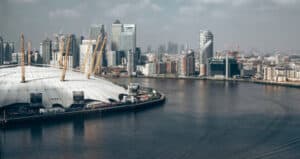Introduction
Investing in real estate is a traditional path to wealth. But as cities grow and evolve, so too do the opportunities for investment. Off-plan real estate, once a niche choice, is now a significant player in the future of urban living.
Understanding Off-Plan Real Estate
The Definition of Off-Plan Real Estate
Off-plan property refers to real estate purchased before completion. Buyers invest based on architectural drawings and developers’ promises rather than a physical property.
The Appeal of Off-Plan Property Investment
The appeal of off-plan properties lies in their potential for high returns. These properties often sell at a discount during the construction phase, allowing investors to realise significant profits upon completion.
The Future of Urban Living
The Rise of Urbanisation
As urban populations grow, so too does the demand for housing. Urban areas are becoming denser, with multi-use developments and high-rise buildings becoming the norm. This growth provides abundant opportunities for off-plan property investors.
The Role of Off-Plan Real Estate
Off-plan investments play a crucial role in shaping the future of urban living. They provide the capital for new developments, driving urban regeneration and accommodating the needs of growing city populations.
Investing in Off-Plan Real Estate
Identifying Opportunities
A successful off-plan investment begins with identifying promising opportunities. Factors to consider include the developer’s reputation, the location’s growth potential, and the projected demand for the property type.
Mitigating Risks
Investing in off-plan real estate comes with risks. Investors can mitigate these through thorough due diligence, seeking legal advice, and carefully assessing financial risks.
Case Studies: Success Stories in Off-Plan Investments
Investors worldwide have reaped substantial rewards from off-plan investments. Consider, for instance, the regeneration projects in London’s East End:
Off-Plan Investment: The Reshaping of London’s East End
The East End of London, once synonymous with working-class life, poverty, and the infamous Jack the Ripper, has undergone a profound transformation in recent decades. From the post-industrial decay of the late 20th century, it has emerged as a dynamic, desirable, and increasingly upscale part of the capital.
The catalyst for this dramatic metamorphosis? A combination of factors, including cultural shifts, the 2012 Olympics, and, crucially, a wave of off-plan real estate investments.
The Turning Point: The London 2012 Olympics
The staging of the 2012 Olympics in Stratford was a pivotal moment for the East End. The games triggered the large-scale regeneration of the area, with significant investment channelled into infrastructure, public spaces, and, importantly, housing. Many of these new residential properties were sold off-plan, years before the athletes set foot in the Olympic Park.
Off-Plan Investments Fuelling Urban Renewal
Off-plan investments played a central role in the East End’s regeneration. Investors, lured by the area’s growth potential, purchased properties in yet-to-be-built developments. The influx of investment capital spurred the construction of high-quality residential properties, attracting more affluent residents and bringing new life to previously neglected neighbourhoods.
One of the standout examples of this trend is the ongoing transformation of Canary Wharf into a residential district. Once a derelict docklands area, it has become a high-rise, high-end neighbourhood, thanks in part to off-plan investment. Luxury apartment blocks like One Park Drive and 10 Park Drive were pre-sold off-plan, with investors attracted by Canary Wharf’s rapid development and projected capital appreciation.
The Future of the East End
The transformation of the East End continues, with off-plan investments playing a crucial role in shaping its future. Developments like The Silk District in Whitechapel or Blackwall Reach in Poplar, sold predominantly off-plan, are ushering in a new era for these historic districts.
Through off-plan investment, the East End is evolving from its working-class roots into a vibrant, diverse, and desirable part of London, demonstrating the significant influence of off-plan real estate investment on urban living.
Conclusion
London’s East End serves as a case study in how off-plan investment can drive urban regeneration, create new communities, and offer substantial returns for investors. As cities continue to evolve, these investments will remain a potent tool for shaping the future of urban living.
Or the high-rise developments in Dubai:
Off-Plan Investment and High-Rise Development in Dubai
Dubai is known worldwide for its audacious architecture, extravagant lifestyle, and futuristic cityscape. It’s a city where the sky’s the limit – both metaphorically and literally. At the heart of this rapid evolution lies a dynamic real estate sector, and within it, off-plan property investment plays a significant role.
A Sky-High Vision
Dubai’s transformation from a small trading port into a global metropolis is a testament to visionary planning. The city’s ambitious growth strategy pivoted around creating a luxurious, high-rise urban environment that would attract international investment, tourism, and business.
The Off-Plan Boom
The early 2000s saw the beginning of an off-plan property boom in Dubai, with developers launching ambitious high-rise projects and selling units off-plan. Investors were drawn in by the promise of significant capital appreciation, flexible payment plans, and the potential for high rental yields. As a result, large sums of capital flowed into the city’s real estate market, fuelling its high-rise development.
Iconic High-Rises: A Testament to Off-Plan Success
Off-plan investment has contributed to the creation of some of Dubai’s most iconic buildings. The Burj Khalifa, the world’s tallest building, is a prime example. Many of its residential units were sold off-plan, years before its completion in 2010.
Another example is the ongoing development of Dubai Creek Harbour, often touted as the ‘Riviera of the Middle East.’ This mega-project, featuring high-rise luxury apartments, is predominantly sold off-plan.
The Future of High-Rise Developments in Dubai
Despite economic fluctuations, the demand for off-plan property in Dubai remains robust, and developers continue to launch new high-rise projects. Developments like the Royal Atlantis Residences on the Palm Jumeirah, and the One Za’abeel with its iconic ‘Lingering Line’, promise to further reshape Dubai’s skyline, testament to the continuing influence of off-plan investment.
Conclusion
The story of Dubai’s high-rise evolution underscores the power of off-plan real estate investment. As cities strive to match Dubai’s meteoric urban growth, the emirate’s model of off-plan investment fuelling high-rise development offers a compelling blueprint.
Both cases highlight how off-plan investments can contribute to urban transformation while offering lucrative returns.
Conclusion
Off-plan real estate investment presents a compelling opportunity to partake in the shaping of urban landscapes and enjoy significant returns. However, to achieve success in this domain, investors need to navigate the challenges with care and astuteness. As cities continue to evolve, off-plan investments will undoubtedly play a crucial role in crafting the future of urban living. If you would like a free, online meeting with one of the Property Investment Consultants at The Savvy Investor Limited, please reach out using the details here. You can even book an online meeting at a time and date convenient to you using this link.
FAQs
1. What is off-plan real estate investment?
Off-plan real estate investment refers to the purchase of property before its completion, often before construction has begun.
2. Why invest in off-plan real estate?
Off-plan investments can yield high returns and play a role in shaping the future of urban living. They provide capital for new developments, driving urban regeneration.
3. What are the risks of off-plan real estate investment?
Risks include developer bankruptcy, project delays, misrepresentation of the final product, and legal and regulatory challenges.
4. How can I mitigate the risks of off-plan real estate investment?
Risk mitigation strategies include conducting due diligence, seeking legal advice, and assessing financial risks carefully.
5. Are off-plan real estate investments contributing to urban living?
Yes, off-plan investments drive urban development by funding new housing and multi-use projects, thus shaping the future of urban living.



